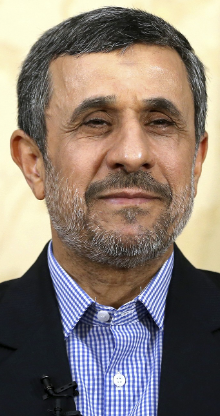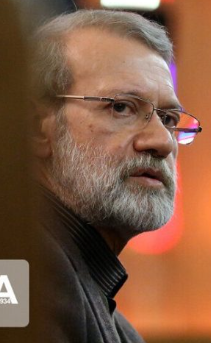October 14, 2022
One month into the ongoing protests, only one member of the regime’s old establishment has spoken up; former Majlis Speaker Ali Larijani has told the government it ought to stop enforcing the dress code if it ever expects a return to normality.
“When 50 percent of the women in the country do not fully observe hejab, police should not get involved in this issue,” said Larijani. “The hejab law should be treated the same way as is the law banning satellite equipment.”
At one point, the regime very harshly enforced the law banning satellite television reception dishes, but, more than a decade ago, it gave up and has since just ignored the law.
Larijani spoke out October 13, the last day of the first month of the protests. He is the first member of the old establishment to make any public comment on the protests. Former Presidents Mo-hammad Khatami and Hassan Rohani have been silent, as have such intellectual lights as former Majlis Deputy Mohammad Javad Bahonar and former Tehran Mayor Gholam-Hossain Kar-baschi. Most noticeably silent is former President Mahmud Ahmadi-nejad, a man who rarely lets an opportunity to comment on anything and everything pass him by.
It isn’t clear if the Supreme Leader’s office has told major figures to remain silent or if they have simply decided on their own to maintain silence.
Larijani said, “As authorities are not strict with people using satellite equipment, despite the fact that there is a law banning its use, the same approach should be adopted with regard to hejab.”
Larijani argued that even during the Pahlavi Dynasty, when women were discouraged from observing Islamic dress rules, a considerable proportion of Iranian women did, in fact, wear hejab.
“At that time, our clergy were treading the right path,” he commented. “Another point is that we should not do something that makes such matters be seen as a state issue; in that case, social behavior will change,” said Larijani. “Should the government intervene in all affairs the way it has in this issue?” he asked.


























